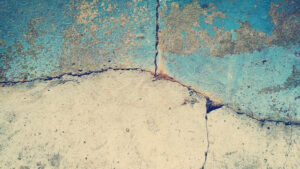
Here are some ways in which concrete could fail you and how you can stop problems with your concrete from happening.
Concrete is an incredibly sturdy and reliable material in many situations. However, like any material, it is going to come with certain vulnerabilities. It’s important to know what can make concrete fail on you because it helps you devise strategies for preventing damage from occurring. Here are some ways in which concrete could fail you and how you can stop problems with your concrete from happening.
Steel Corrosion
This type of deterioration is the one that is most common for colder places, and it can be a serious issue. It’s a kind of corrosion that is tough to handle because you can’t just stop corrosion once and be fine; it becomes a constant ordeal of tending to damage before it gets out of control. In short, you can’t really stop it. The process of corrosion can only be decelerated.
What’s good is that you have a few manners in which you can keep your steel safe against corrosion. First, there should be a concrete cover over your steel reinforcement. This cover should be 1.5-2 inches. Also, you’ll want an incredibly impermeable concrete mix because this will slow down the rate at which carbonation and chlorides can get to steel. You can also use external protection options, like waterproof coatings, which also slow down the progression of damage from moisture and chlorides.
Sulfate Attack
You’ll usually experience a sulfate attack on your concrete whenever concrete receives exposure from water that has plenty of dissolved sulfates in it. Sulfate attacks come in two varieties.
The first is the physical sulfate attack. With this variant, the sulfate-rich water seeps inside the concrete’s surface. Then, the sulfates crystallize and expand, which can impact the concrete structure.
The other variant is the chemical attack. In chemical attacks, cement paste and sulfate salts chemically react with each other. This makes concrete soften up and eventually erode.
To lower the chances of sulfate attacks occurring, you should test your soil and water to make sure the concentration of sulfates is low. If your building gets a lot of exposure to sulfate, your water-to-cement ratio should be 0.45 and have compressive strength of at least 4,500 psi. Lastly, you’ll want Type V cement as your cement of choice. This can be combined with various alternate cement-like materials.
Concrete Visions Will Get The Job Done Right
Concrete Visions has been working with clients for over 25 years. Our G&M Services installers are certified with the industry’s major firestop product manufacturers. As part of our firestop service, we can assess abnormal field conditions and, with the manufacturer’s technical support assistance, provide engineering judgments in a timely fashion to comply with contract specifications. Our Field Mechanics undergo ongoing training, including mandatory monthly safety meetings, weekly Toolbox Talks where safety and equipment information is shred, and trainings on safe work standards and safety best practices.
